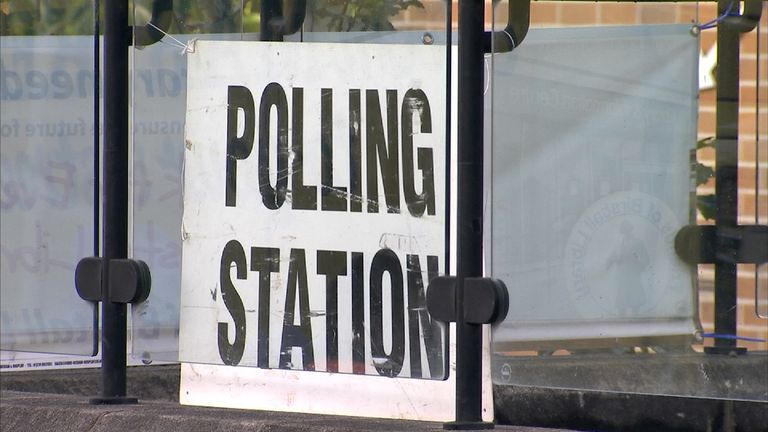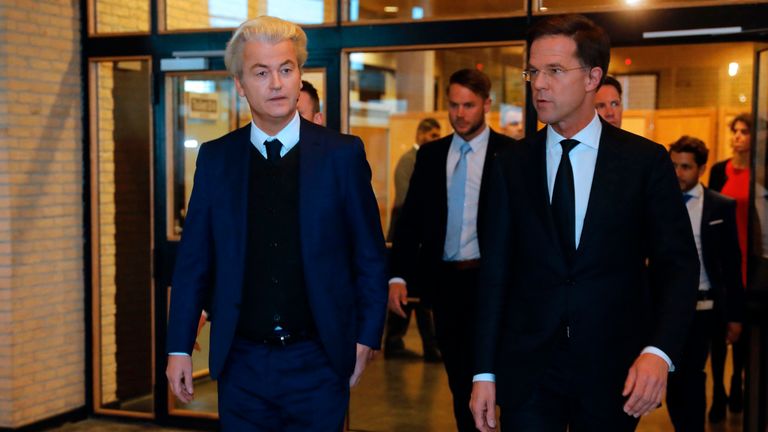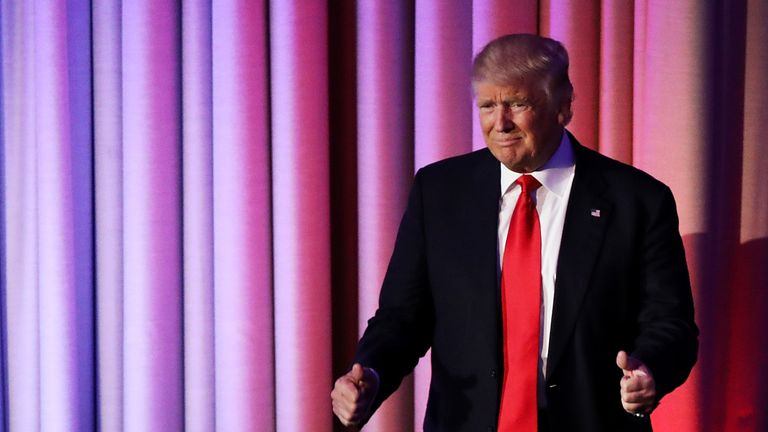Election polls: What they said versus what actually happened
Sky News' Harry Carr gets out his red marking pen and scores election pollsters on their performance over the last few years.
Monday 8 May 2017 18:04, UK
Pollsters have taken some flak over the last few years. But has the criticism always been fair?
Sky News' Head of Data Harry Carr takes a look at how they've done recently against what happened in reality.
The French Election
In the first round, the pollsters - in a time of huge political change creating very difficult circumstances - nailed it, getting within a percentage point for each candidate.
They correctly predicted the key events to the election. Firstly the rise of Emmanuel Macron with his new party En Marche!
They correctly foresaw that right-wing eurosceptic Marine Le Pen would join him in the second round, beating the scandal-plagued candidate from the mainstream centre-right Francois Fillon.
They also called the unlikely rise of Jean-Luc Melenchon from the far left to run it close.
Lastly they predicted the catastrophic result for the Socialist Party of outgoing President Francois Hollande, their candidate Benoit Hamon finishing a dismal fifth.
The second round was moderately successful for the pollsters.
They got the winner right, but underestimated the margin of Emmanuel Macron's victory by around three percentage points.
As often is the case, so long as the overall winner is called right, the polling industry can get away with it - it might have been a very different story in a much tighter race.
Overall pollsters grade: A-
The Dutch Election
From outside the Netherlands, the main story of the Dutch election was all about Geert Wilders, a strikingly coiffured politician of the far right who frequently compares the holy book of Islam - the Koran - to Hitler's autobiography Mein Kampf.
For many months he topped the polls, but fell back in the run-up to the vote - as indeed had been the case ahead of previous general elections.
In the end he finished with the second largest proportion of the vote - the polls got the vote for Mr Wilders' Party for Freedom right.
However, they underestimated the victory of the mainstream centre-right People's Party for Freedom and Democracy by four to six percentage points - though Mr Wilders will claim a moral victory in dragging the rhetoric of the main parties around immigration far closer to his own throughout the campaign.
Again, they called the right result, but were perhaps lucky to do so.
Overall grade: B
US Presidential election
Across the nation, the pollsters got the US Presidential election pretty much spot on. Yes, you did read that correctly.
The national polls showed Hilary Clinton with a lead of around 2 points over Donald Trump - which is exactly what happened in terms of the popular vote.
However, in some individual states the polls did fall down, with large errors in the 'Rust Belt' states of Wisconsin, Michigan and Pennsylvania.
With these states, which had been expected to be safe for Mrs Clinton, Mr Trump won the vote in the Electoral College, giving him victory in the USA's convoluted electoral system.
Grade for national pollsters: A
Grade for (some) state pollsters: F
EU referendum
Politicians and pundits routinely talk about the polls getting the EU referendum wrong - if I worked for polling organisations Opinium or TNS I would rightly be seriously miffed.
They both got the EU referendum result right to within a percentage point. Indeed for a week before the vote the polls had frequently showed Leave ahead, with the common consensus being that it was too close to call.
Some pollsters did get it wildly wrong, swinging the polling averages more heavily in favour of Remain.
The final poll of polls did show a narrow Remain win by around one point - but it was never clear cut in the way some have suggested.
Had this been a less competitive race - or indeed had the problem been underestimating rather than overestimating the Remain vote - then the size of the error for most pollsters would not have been noticed.
As it was, the industry - in many cases unfairly - has been seen as misreading perhaps the most important electoral outcome in recent years.
Overall grade: C (though an A* for those companies that got it bang on and an F for those who got it wildly wrong)
UK regional elections
Elections to the devolved parliaments in Northern Ireland, Scotland and Wales get less coverage than general elections, and are polled less frequently.
However, there have been some real successes in a difficult time for the UK industry. The one pollster publishing polls for the Northern Ireland Assembly in 2017, Lucid Talk, got the result pretty much bang on.
YouGov got the main story of the Welsh Assembly election right in 2016, correctly measuring the vote for Labour, the Conservatives and Plaid Cymru, though they overestimated UKIP by three points.
For the Scottish Parliament elections, the SNP were slightly overestimated and the Conservatives slightly underestimated, though the absolute collapse of the Labour Party was perfectly predicted.
And for the London Mayoral election the polling was exactly right, predicting Sadiq Khan's second round win over Zac Goldsmith to within a percentage point.
A mixed bag and not perfect, but these were a good set of results for an industry frequently written off by pundits.
Overall grade: B+
Labour leadership elections
YouGov have done a fantastic job in predicting both wins for Jeremy Corbyn in back-to-back Labour leadership elections.
Their polls gave credence to rumours of unexpected momentum building behind Mr Corbyn in 2015, and showed him in no trouble at all in 2016. On both occasions they got the end result spot on.
Overall grade: A*
2015 general election
There's no getting around the fact that this was a huge embarrassment for the pollsters.
Much of the coverage was around a likely hung parliament with Ed Miliband looking the more likely Prime Minister.
The polls consistently showed Labour and the Conservatives neck-and-neck, and Mr Miliband had the more natural potential allies in the Scottish National Party.
In the end, David Cameron's Conservatives won a majority.
Pollsters will point to the fact they got the rise of UKIP and the collapse of the Liberal Democrats pretty much spot on - on paper the more difficult stories to predict.
But they missed the most important story - and have been in the doghouse (in some cases unfairly) ever since.
Overall grade: F










